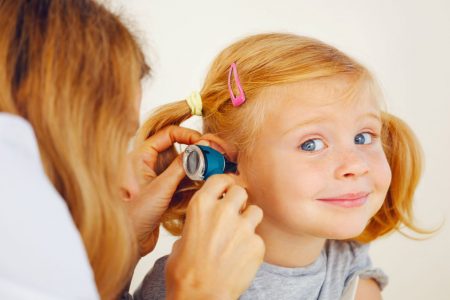The stages of speech and language development can vary from child to child. There’s a wide variability in speech development so if your neighbor’s 2-year-old can string together seven-word sentences and your toddler says only two words at a time, it may not be something to worry about. Some children simply acquire words more gradually.
However, most 2-year olds should be able to identify common things, such as pointing to eyes, ears and nose when asked. By age 3, children should begin to identify colors and understand descriptive concepts (big versus small, for example).
Talk, Read, Sing
There are many things parents can do to help their child’s speech develop. If your child is using short phrases like ‘I see truck’ rather than ‘I can see the truck’ encourage them to speak in full sentences by repeating what they say in correct sentence form.
Of course, it’s convenient to put on the TV or play videos for your child while you do house chores, but that is a poor substitute for speech development. Talking with your child, reading to them and labeling objects are some of the best ways to encourage language development. You can start with a book that has textures so your child can touch. Then, let your child point to recognizable pictures and try to name them. Choose books that have large colorful pictures and ask your child what it is and try to get them to point to the objects. It’s also good to point out objects around the house, such as colors and shapes. You can even place familiar objects in a box and have your child take one out and tell you its’ name and how to use it. For example, “this is my ball. I bounce it and play with it.” It’s worthy to always praise your child when they tell you something to show that you understand the words.

Another good thing to do is to sing to your child and say nursery rhymes with them to help with rhythm of speech. Help your child learn new words by saying a word and explaining what it means. Talk about opposites like “up” and “down” or “on” and “off,” and talk about animal sounds with them to connect the sound and the animal. Teach them to do what you do, like clapping your hands and playing peek-a-boo.

Signs to Watch for If Your Child Isn’t Vocalizing
- The toddler only imitates speech or actions and they are not producing words or phrases spontaneously
- The child says only certain sounds or words repeatedly and can’t use oral language to communicate more than their immediate needs
- At 2-years-old and 3-years-old, a child can’t follow simply directions, such as “put that on the table or bed”
If you are concerned that your toddler isn’t talking enough then you should bring it to the attention of the pediatrician for a checkup. Since a common cause of speech delays is usually lingering fluid from a middle-ear infection, your doctor may check your child’s ears. Children who have trouble hearing may have trouble articulating as well as understanding words. An audiologist would be able to test a child’s hearing whenever there’s a speech concern.
If your doctor believes that your child has a problem, it’s important to get an early evaluation by a speech pathologist, who will evaluate your child’s speech and language skills within the context of their development. The speech pathologist will also asses what your child understands (receptive language) and what they can say (expressive language). Based on the tests results, the speech pathologist might recommend speech therapy for the child.


